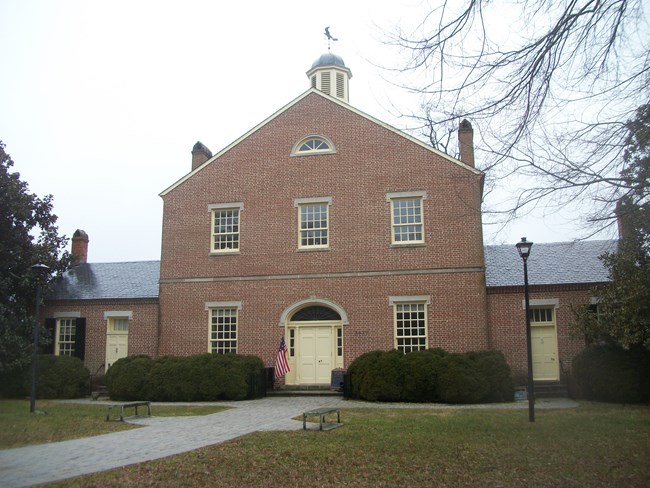Last updated: August 27, 2021
Article
An Unpopular Case

NPS image
- Thomas Stone writing to a creditor in 1774
During the colonial period, County sheriffs collected taxes to pay the fees for the Anglican clergy, county lawyers, and local government officials. In 1771, Joseph Harrison, a Maryland delegate who rejected the idea of paying taxes for the support of the clergy, was arrested by local Charles County sheriff, Richard Lee, Junior, son of wealthy landowner Squire Lee, for failure to pay a poll tax. In order to stay out of Lee's infamously overcrowded jail, Harrison paid the poll tax. Harrison later brought charges of assault and battery and false imprisonment against Lee, asking for 60 pounds sterling, equivalent today to several thousand dollars.
The case was brought to Charles County at the request of the prosecuting attorneys, Samuel Chase and William Paca, two well-respected lawyers from Annapolis with multiple powerful connections in the colonial government. Respected local lawyer, Thomas Stone, made the unpopular choice to defend Sheriff Lee in this trial. Lee invoked a 1702 act that justified his pleading of not guilty to the charges against him. Although Harrison had not been jailed, the jury felt that the threat of arrest was an "...oppressive and illegal Demand of the [poll tax] as an Offence of the First Magnitude against the Rights of Englishmen." The jury thereupon convicted Lee and awarded Harrison the 60 pounds.
Thomas Stone paid a price for defending his unpopular client. After the Harrison vs. Lee trial, the sheriffs on Stone's court circuit either could not or would not collect his attorney's fees. Despite his treatment by the local sheriffs, Stone's reputation as a lawyer grew throughout Maryland. A few months after the court decision, Stone was selected as a Maryland delegate to the second Continental Congress alongside his adversaries in the court case, William Paca and Samuel Chase. The trial's importance taught Thomas Stone the significance of listening to the "vox populi"; the voice of the people. He would listen to them when he decided to sign the Declaration of Independence.
